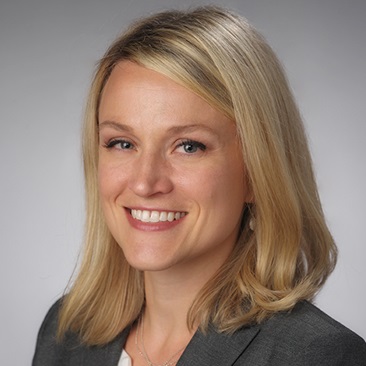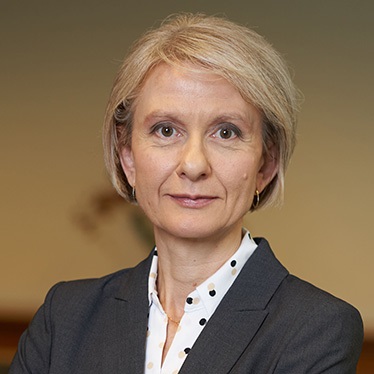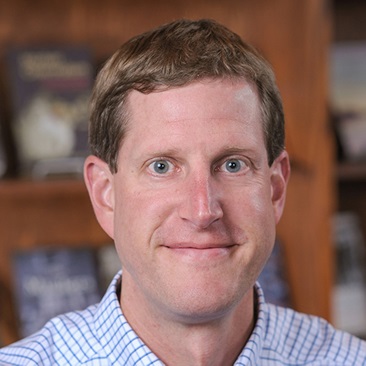Dean Van Slyke appointed by US Secretary of Defense to Defense Business Board task force
May 15, 2020
As the first academic scholar appointed to the Defense Business Board, Maxwell Dean David M. Van Slyke joins a select group of business executives appointed by the U.S. Secretary of Defense to help make the Department stronger and more efficient.
From February – May 2020, Van Slyke was also part of a four-person task force engaged in a comprehensive study of the management structure of the Department of Defense. Their independent assessment of the effectiveness of the Chief Management Office position and recommendations can be viewed on the DBB website.
Congratulations, Dean Van Slyke, on this prestigious appointment. First, please tell us: what is the Defense Business Board (DBB) and who are its members?
The DBB was created in 2001 to provide an outside, independent perspective on business management practices to the U.S. Secretary of Defense and Deputy Secretary of Defense.
Traditionally, all of the people on the Board have been CEOs. All or many have had varied experiences in the private sector – from budgeting, finance and investment banking, to construction and real estate, to supply chain management, to aviation and aerospace. None are paid for their service.
As Dean of both a policy school and a college of social science, I’m similarly in charge of an operation of considerable size and complexity, managing people, resources, and budgets. My research is in public sector contracting and public-private partnerships, with applications to defense policy but not exclusively. So, when it comes to our nation’s military and defense policy positions, I’m not anchored to a particular type of thinking or tied to a specific agenda. I come to the table asking, “Help me understand the original assumptions here. What was the policy goal for this interaction or intervention?”
As you mentioned, your expertise is not primarily as a specialist in defense policy but rather management and policy implementation, so what inspires your volunteer service on the DBB—on top of your very busy job as dean and professor?
I’m inspired to serve the public good like so many Maxwell deans before me. And, I’m inspired by the opportunity to improve my research and teaching like all Maxwell professors.
With an annual budget of $741 billion, the Department of Defense is the single largest federal agency. Most people don’t realize its scale, scope, and complexity. Supporting our military is one of the biggest global supply chain and logistics management systems in the world. The Department’s different activities have to do with everything from providing health care, to a commissary system that is larger than most national grocery chains, to operating one of the largest information security networks in the world.
However, global threats and challenges have changed so significantly that securing our interests at home and abroad will require sustained business process transformation. You can just imagine the challenge of moving an agency this big and complex, with locations all over the world. As a researcher and professor at the intersection of business-government policy, I can think of no place for me to have a broader impact within our federal government.
How do you see this work benefiting your students?
Within the Department of Defense alone, there are 64,000 military personnel, 201,000 civilians, and 637,000 private contractors. Let that sink in for a minute. Then add in the 1.3 million active duty uniformed military and 800,000 reserve forces service members and you have the largest military in the world.
As a professor of public administration, my goal is to educate and prepare public service leaders of the future who can manage people, programs, budgets, and data under conditions of uncertainty, complexity, and risk. My goal, and the goal of all those in and with a commitment to public service, is to develop the specialized skills and knowledge to help government run better and achieve its missions more effectively. Increasingly that means knowing how to partner effectively with the private sector.
But you can’t just run government like a business. Workforce incentives are different. Funding considerations are different. Measures of success are different. So, having the opportunity to study, deliberate, and formulate best business practices for running the largest government agency in the world with a group of talented CEOs and committed public servants will also advance my own thinking and the expertise I bring to my students in the classroom. And, it will be an opportunity to share with the Department of Defense the incredible faculty, staff, and alumni experts that are part of the Maxwell School. Our mission is strengthening citizenship and public affairs, and we have a great deal that we can contribute to the public good.
05/15/20
Related News
School News

Mar 7, 2024
School News

Jan 22, 2024
School News

Nov 13, 2023

